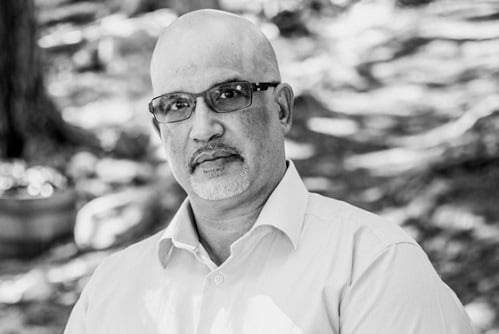How Halo Labs went from testing in a chicken coop to getting listed on the NEO

Kiran Sidhu was sitting on a Karela beach in India when his entrepreneurial instincts kicked in again. With the sun burning his head, he decided his year off was over and he would add marijuana to his biotech, online poker and prepaid card issuer start-up resume.
He returned to the US in 2012 and got the word out he was looking to invest. From meeting drug dealers to testing and honing extraction techniques in a chicken coop, Halo Labs is now a recognized expert in cannabis oils and concentrates and was this week listed on the NEO (NEO:HALO).
An established presence in Oregon having sold 2.7 million grams since April 2016, it has just expanded into Nevada and will enter the pivotal California market next month. The firm has already entered into an agreement with one Canadian LP, which is building them a facility, and more “juicy” Canada deals are on the table.
Once oils and concentrates – Halo’s products include vape cartridges and dabables – become legal, CEO and founder Sidhu said it plans to offer Canadians its full suite of products.
Pointing to Health Canada’s cautious nature, he has earmarked 2020 as the time Halo will likely enter the market north of the border. In the meantime, he tells investors the Stateside operation offers compelling numbers and the company is trading at a discount.
Revenue is projected to reach US$50 million by the end of 2019, with Oregon and Nevada pulling in US$1 million a month each and a US$2.2million a month deal with Falcon International in California recently inked. Falcon controls controversial Brass Knuckles, a company owned by Dr Dre and Exhibit.
Halo has raised US$27 million in funding and break-even point, said Sidhu, will remain around $2million going in 2019. The LA-raised entrepreneur and angel investor said competitors who claim to have the silver bullet when it comes to the marijuana business are fooling no one, and that it ultimately comes down to manufacturing and hard work.
He said: “None of our products are yet legal in Canada but they are the fastest growing segment in the business. In our view, oils and concentrates will surpass flower by 2020. Why? When you are smoking a joint, 80-90% of what we smoke is garbage, it’s just plant material. Only 10-20% of it is active material, which requires a process of distillation and extraction.”
Sidhu’s journey to being on the verge of a multi-million dollar profitable operation started when, after returning from India, he met two young drug dealers and their promoter, who were using a Starbucks decaffeination machine to make hash oil via CO2 super critical extraction.
After a US$3-4 million injection of capital from Sidhu and his family, and with the help of experienced businessmen Andreas Met and Philip van den Berg, they established Golden Leaf Holdings, which later went public on the CSE.
By the middle of 2015, the company promoter had brought in new management. The three older heads objected to the new direction and walked away, retreating to Met’s garage to run volatile extraction tests. The introduction of Dr Parkash Gill, who patented chemotherapy drug Taxol and was a distant relative of Sidhu, proved a turning point.

“Now we got very industrious,” said Sidhu. “We had the scientist and the wind at our back so we decided to make the big move from Andreas’s garage to his chicken coop at the bottom of his farm because now we were really going to extract.
“Andreas built an extension to his garage; we would package the product and then put it in an old Toyota Sequoia hatchback and take it to the local dispensary. It was fun.”
Quickly realizing the business had potential, they raised US$1 million from friends and family and made the leap from the chicken coop to a 12,000ft old manufacturing plant in Oregon. Five working tables quickly expanded to a thriving operation.
Sidhu said: “What we make is really just an extension of what they have been making in Morocco and India for years – instead of using mesh to take out the resin and trichomes, now we are using other methods.”
Follow WP on Facebook, LinkedIn and Twitter



